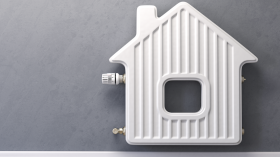Sue Robb of 4Children talks to Julie Laughton and Alison Britton from the Department for Education about the role of childminders in delivering the 30 hours free entitlement.
Air quality consultation launched
A new consultation has been launched on how best to introduce Clean Air Zones in key cities as part of plans to improve air quality.
Five cities - Birmingham, Leeds, Nottingham, Derby and Southampton - will be required to have the zones in place by 2020, targeting areas of the city where air quality problems are the most serious to reduce the impact on people’s health and create cleaner and healthier environments.
The cities will encourage the replacement of old, polluting vehicles with modern, cleaner vehicles - with most polluting vehicles, such as old buses taxis, coaches and lorries, discouraged from entering air quality hotspots.
Additionally, Birmingham and Leeds will discourage the most polluting diesel vans and implement other measures which may include park and ride schemes, changes in road layouts and provision of infrastructure for alternative fuels.
Councils already have powers to tackle air pollution and across the country they are taking action, but the government believes that more needs to be done to bring down nitrogen dioxide levels. Applications are now open for councils to bid for a share of at least £3 million as part of an Air Quality Grant to help improve air quality in their area.
Thérèse Coffey, environment minister, said: “We need to tackle air pollution and creating Clean Air Zones will improve the quality of life for people who live and work in our towns and cities, both now and in the future.
“Real progress has been made, but there is more to do, which is why we have also committed more than £2 billion to greener transport schemes since 2011.”
Cllr Martin Tett, environment spokesman for the Local Government Association, said: “Giving electric cars priority could be helpful but such decisions are best made by councils locally depending on local circumstances.
“Clean air zones may have a role in some places but on their own they are not the answer to tackling air pollution. Councils need a range of powers and devolved funding to allow them to further tackle poor air quality. This includes the ability to combat congestion hot spots and to promote alternative travel, such as cycling, walking and public transport.
“We are also calling on the government to fully fund the concessionary fares scheme, handing control over the Bus Service Operators' Grant, a fuel duty rebate paid directly to bus operators by the government. It is also important that the government takes action at a national level to incentivise a move away from polluting diesel vehicles to non-diesel transport.”
Company Focus
The Isuzu D-Max is a rugged workhorse that can fulfil a myriad of purposes as both a business and personal vehicle. Consequently, the D-Max is a particularly popular choice when it comes to farming, construction, and trade industries. Uncompromising in nature, the D-Max strives to be the ideal companion for many business needs.
Event Diary
UKREiiF has quickly become a must-attend in the industry calendar for Government departments and local authorities.
The multi-award-winning UK Construction Week (UKCW), is the UK’s biggest trade event for the built environment that connects the whole supply chain to be the catalyst for growth and positive change in the industry.
Supplier Profiles
Geo Energy
At GeoEnergy Design, we're on a mission to disrupt the traditional way heating and cooling ha
Latest Features
Professor Harith Alani, director of the Knowledge Management Institute at the Open University explains how AI can be used for good and bad.
Alex Lawrence, head of health & social care, techUK sets out techUK’s Five Point Plan for CareTech.

















